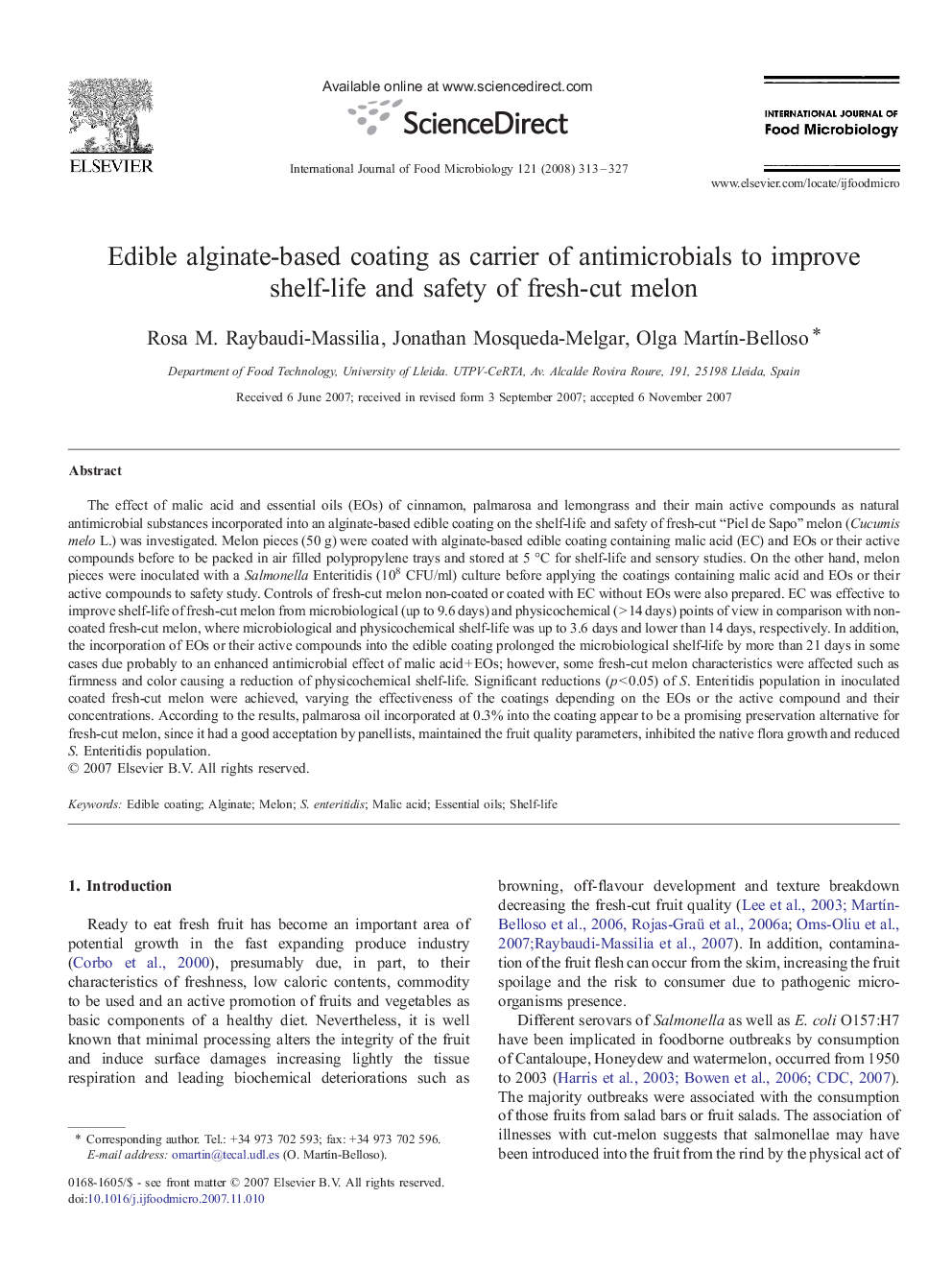| کد مقاله | کد نشریه | سال انتشار | مقاله انگلیسی | نسخه تمام متن |
|---|---|---|---|---|
| 4369283 | 1616732 | 2008 | 15 صفحه PDF | دانلود رایگان |

The effect of malic acid and essential oils (EOs) of cinnamon, palmarosa and lemongrass and their main active compounds as natural antimicrobial substances incorporated into an alginate-based edible coating on the shelf-life and safety of fresh-cut “Piel de Sapo” melon (Cucumis melo L.) was investigated. Melon pieces (50 g) were coated with alginate-based edible coating containing malic acid (EC) and EOs or their active compounds before to be packed in air filled polypropylene trays and stored at 5 °C for shelf-life and sensory studies. On the other hand, melon pieces were inoculated with a Salmonella Enteritidis (108 CFU/ml) culture before applying the coatings containing malic acid and EOs or their active compounds to safety study. Controls of fresh-cut melon non-coated or coated with EC without EOs were also prepared. EC was effective to improve shelf-life of fresh-cut melon from microbiological (up to 9.6 days) and physicochemical (> 14 days) points of view in comparison with non-coated fresh-cut melon, where microbiological and physicochemical shelf-life was up to 3.6 days and lower than 14 days, respectively. In addition, the incorporation of EOs or their active compounds into the edible coating prolonged the microbiological shelf-life by more than 21 days in some cases due probably to an enhanced antimicrobial effect of malic acid + EOs; however, some fresh-cut melon characteristics were affected such as firmness and color causing a reduction of physicochemical shelf-life. Significant reductions (p < 0.05) of S. Enteritidis population in inoculated coated fresh-cut melon were achieved, varying the effectiveness of the coatings depending on the EOs or the active compound and their concentrations. According to the results, palmarosa oil incorporated at 0.3% into the coating appear to be a promising preservation alternative for fresh-cut melon, since it had a good acceptation by panellists, maintained the fruit quality parameters, inhibited the native flora growth and reduced S. Enteritidis population.
Journal: International Journal of Food Microbiology - Volume 121, Issue 3, 10 February 2008, Pages 313–327